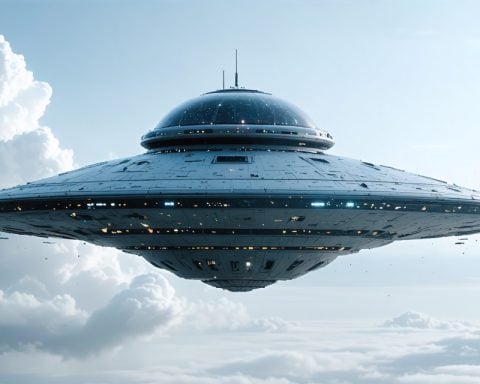The iconic Alien franchise has captivated audiences for decades, yet some of its most promising sequels never saw the light of day. While the series is known for its legendary films like Alien and Aliens, attempts to follow up on their success often stumbled.
One alternate vision, Alien 3, written by William Gibson, presented a radically different take. This draft envisioned Ripley drifting in a coma while Hicks and Bishop faced off against waves of engineered xenomorphs aboard a vast space station. The script promised an action-packed thrill ride, but was ultimately scrapped for a version that leaned heavily on horror elements. Fans often wonder how Gibson’s narrative might have reshaped the franchise.
The buzz continued with Neil Blomkamp’s proposed Alien 5, which aimed to disregard previous sequels and serve as a direct continuation of Aliens. This ambitious project sought to reunite Ripley, Hicks, and Newt, exploring their characters in depth. Concept art had fans eager, but as Alien: Covenant took precedence, Blomkamp’s project was sadly put on hold.
Lastly, Prometheus sparked excitement, but the sequel initially dubbed Alien: Paradise Lost never materialized. Instead, audiences were presented with Alien: Covenant, which shifted its focus away from beloved characters to tell a more conventional tale.
These near-misses remind us of the limitless visions the Alien saga could have pursued.
Exploring the Implications of Unfulfilled Visions in the Alien Franchise
The Alien franchise’s numerous unrealized sequels underscore the tension between creative ambition and commercial viability in Hollywood. As potential narratives languish in development limbo, we witness the broader implications of this dynamic for society and culture. The way films evolve—or fail to evolve—reflects shifting audience expectations and industry practices that prioritize franchise stability over innovative storytelling. In an age where blockbuster films often recycle established brands, the absence of groundbreaking installments like William Gibson’s Alien 3 might limit cultural discourse around the themes of resilience and survival that permeate the universe of Alien.
Moreover, the environmental implications of sci-fi storytelling cannot go unnoticed. The Alien series, particularly with references to corporate greed and environmental exploitation, offers a reflection of real-world crises. As the series has historically highlighted the dangers of unregulated technological advancement and its ecological ramifications, the lack of sequels could stall essential dialogues about these pressing issues in contemporary society.
In terms of future trends, the entertainment industry may increasingly revisit these unrealized visions due to a growing appetite for remakes and reboots. Fans’ enthusiasm for projects like Blomkamp’s Alien 5 illustrates a desire for deeper explorations of iconic universes, potentially leading studios to reconsider their strategies. The long-term significance of this phenomenon lies in its ability to challenge creators to strike a balance between honoring legacy and fostering innovation—ultimately shaping the cinematic landscape for years to come.
Exploring the Untold Stories of the Alien Franchise: What Could Have Been
The Alien franchise, renowned for its blend of science fiction and horror, has seen numerous projects come and go over the decades. While we celebrate iconic films like Alien and Aliens, many intriguing ideas never made it to the screen. This article delves into some of these abandoned concepts, offering insights into what might have been and their implications for the franchise.
Pros and Cons of Unproduced Scripts
Pros:
– Innovative Storytelling: Scripts like William Gibson’s Alien 3 proposed unique narratives that could have expanded the Alien universe. Gibson’s vision included a space station setting and a focus on action, diverging from horror tropes typically associated with the franchise.
– Character Depth: Neil Blomkamp’s Alien 5 aimed to bring back fan-favorite characters such as Ripley, Hicks, and Newt. This project promised deeper character exploration, potentially appealing to long-time fans and attracting newer audiences.
Cons:
– Fan Expectations: Alterations in direction can lead to backlash. The anticipation surrounding Blomkamp’s vision generated significant hype, leading to disappointment when it was shelved.
– Inconsistent Tone: The franchise’s identity might have been muddled by conflicting storytelling approaches. Shifts from horror to action, as proposed in some drafts, could have diluted its established atmosphere.
Key Features of Unproduced Works
1. William Gibson’s Alien 3
– Setting: A vast space station rather than a prison planet.
– Plot Elements: Ripley in a coma while Hicks and Bishop battle engineered xenomorphs.
2. Neil Blomkamp’s Alien 5
– Direct Continuation: Designed to follow the events of Aliens while ignoring previous sequels.
– Artistic Vision: Concept art highlighted a retrospective on characters, promising a deeper exploration of their journeys following the original films.
3. Unmade Sequel to Prometheus
– Initially titled Alien: Paradise Lost, which was later abandoned in favor of Alien: Covenant.
– Planned to continue the themes of creation and existential thought, but shifted focus instead, leaving fans desiring more complexity.
Limitations and Market Impact
Though many of these projects never reached production, their existence speaks volumes about the evolving landscape of the Alien franchise. The most notable limitation lies in the balancing act of maintaining franchise identity while innovating. Market analysis reveals that fan reception is critical; diverging too far from successful previous installments can risk alienating the existing fan base while failing to capture new audiences.
Trends and Predictions
As the Alien franchise continues to thrive, current trends point to a resurgence of interest in expansions of its universe through multimedia formats. Developments in video games and television, such as the upcoming Alien television series, reflect a desire to explore various narrative avenues without the constraints of traditional filmmaking.
Conclusion: The Unfulfilled Legacy
The abandoned concepts of the Alien franchise serve as a reminder of the creative potential within Hollywood. As the franchise evolves, exploring its untaken paths could ignite renewed interest, ensuring its legacy remains vibrant and relevant. Fans are left to ponder what these alternative visions might have contributed to this iconic saga.
For more information on the Alien franchise, visit 20th Century Studios.



















